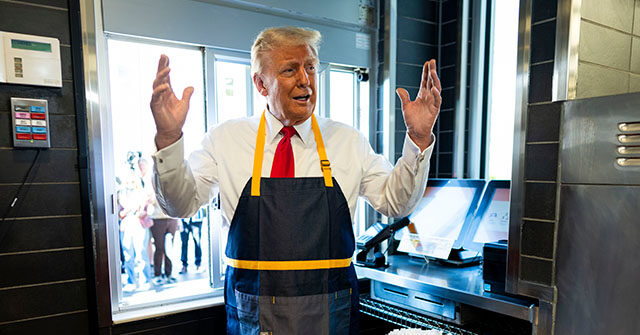On Tuesday, Senate Democrats expressed their frustration towards McDonald’s after the fast-food giant was accused of price gouging despite reportedly increasing its profits and catering to customer needs. This criticism came in light of a successful campaign effort by former President Donald Trump, who was recently seen working at a McDonald’s drive-thru in Pennsylvania. Images of Trump engaging with customers resonated widely across social media, with many interpreting the event as effective political strategy. However, rather than focusing on the implications of Trump’s actions, Senators Ron Wyden, Bob Casey, and Elizabeth Warren channeled their ire towards McDonald’s itself, questioning the motives behind rising prices in the fast-food industry.
In a letter directed to McDonald’s CEO Chris Kempczinski, the trio called for insight into the company’s pricing methodology, specifically its price increases over recent years. Notably, the letter omitted any discussion of the broader economic policies implemented by the Biden-Harris administration that have contributed to inflation. The senators highlighted the significance of McDonald’s as the leading fast-food chain in the United States and expressed concern that its pricing decisions could disproportionately affect American consumers, especially struggling families trying to manage their budgets amidst rising costs.
The senators pointed out how fast-food prices have exceeded overall inflation rates since the onset of the COVID-19 pandemic, creating a challenging situation for consumers who depended on affordable meal options from places like McDonald’s. They noted that since 2020, the Consumer Price Index has risen by 20 percent, while the price increases for certain McDonald’s menu items may have surpassed that figure significantly. Moreover, a review of menu prices at various fast-food restaurants revealed that a majority of items from leading chains like McDonald’s, Taco Bell, Chick-fil-A, and others have also risen at rates above inflation, complicating the dining landscape for customers.
Amidst rising prices, the senators emphasized that corporate profitability should not come at the expense of consumers’ ability to afford basic necessities such as food. They framed their inquiry to McDonald’s not merely as a matter of concern for its pricing but as part of a larger investigation into consumer costs across the economy. The overarching question they posited was why McDonald’s prices have escalated to such a level, especially when juxtaposed with the struggles of American families.
The Democratic senators’ remarks underscore a broader dialogue concerning the impacts of corporate strategies on consumer markets, particularly in essential sectors like food. As inflation persists and financial pressures mount for many households, the scrutiny placed on companies like McDonald’s reflects larger economic themes that resonate with the general public. The critique serves as a reminder of the tensions between corporate growth and consumer affordability, compelling corporations to balance their profit motives with the socio-economic realities faced by everyday consumers.
In conclusion, the episode illustrates a significant intersection of politics and consumer affairs, where a high-profile political figure’s actions create ripples that prompt government scrutiny into corporate practices. The letter from Senate Democrats spotlights not only specific pricing concerns with McDonald’s but also broadens the conversation about inflation and consumer rights in a fluctuating economic climate. Whether these inquiries lead to any substantial changes in the fast-food industry remains to be seen; however, they undeniably capture the prevailing anxieties surrounding corporate responsibility and consumer protection in today’s economy.

